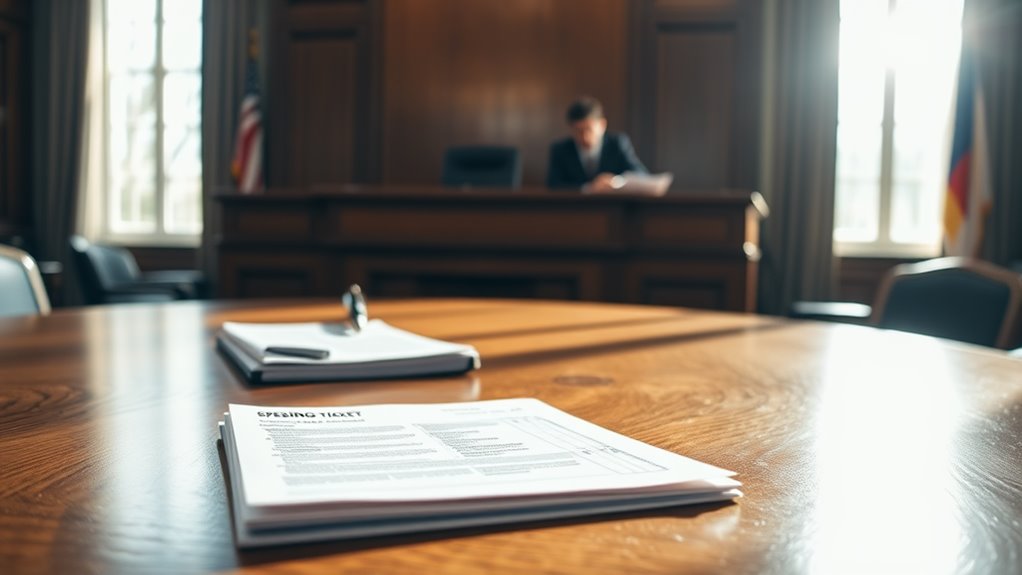Real-Life Wins in Ticket Negotiation
When it comes to ticket negotiation, your success hinges on preparation and strategy. Knowing market values and understanding what buyers want can give you a significant edge. Using silence to your advantage can prompt quicker decisions, while addressing concerns builds trust. But what specific tactics can you implement to guarantee a win-win situation? Let's explore the nuances that can elevate your negotiation game.
When you enter the world of ticket negotiation, understanding the fundamentals can make all the difference. Mastering key terms like anchoring and decision fatigue can empower you to negotiate more effectively. By setting an initial price, you influence the perceived value of the ticket, steering the conversation in your favor.
Remember, as the day goes on, decision fatigue sets in for everyone involved. Simplifying your offers later in the day can lead to higher acceptance rates, so time your negotiations wisely. Traffic violations can greatly impact negotiation dynamics, so being aware of them can enhance your strategy.
Market research is essential. Before you engage in discussions, know the fair market values for the tickets you're interested in. This knowledge not only backs up your offers but also positions you as a credible negotiator.
Knowing the fair market values for tickets enhances your credibility and strengthens your negotiation position.
Trust building is important, especially in high-value negotiations. Establish relationships and demonstrate understanding of the buyer's needs. When you prove you're listening, you pave the way for a smoother negotiation process.
When dealing with high-value ticket sales—those over $100K—you'll often find multiple stakeholders involved. Each decision-maker has their own concerns and priorities. Anticipating these objections can help you counter them effectively, reinforcing your position.
Utilize psychological tactics, like silence and pauses, to give the other party time to reflect on your offers. This allows for deeper consideration and can lead to more favorable outcomes.
Framing your offers can make a notable impact, presenting options in a manner that feels appealing. Create urgency by setting deadlines; this encourages prompt decision-making and can help seal the deal.
Flexibility is another key aspect. Be open to adjusting terms to secure an agreement. Sometimes, a small concession can lead to a considerable win for both parties.
Common objections in ticket negotiations often revolve around price concerns and perceived risks. Address these head-on. If the buyer feels uncertain, offer proof of value, demonstrating the benefits that justify the price.
Understanding their financial constraints allows you to align your offer with their budget expectations, making it easier for them to see the value in saying yes.
Preparation and planning can't be overstated. Research the buyer's needs thoroughly, developing a strong business case that highlights potential ROI. Preparation is critical for navigating negotiations effectively, including anticipating objections by forecasting concerns and crafting responses in advance.
This preparation builds your credibility and instills confidence in the negotiation process. Staying calm under pressure is essential; a composed demeanor can influence the conversation positively.
Don't underestimate the power of walking away. Having the option to leave the negotiation can provide leverage. It conveys that you're not desperate for a deal, which can shift the dynamic in your favor.
Always have alternative options ready—backup plans can give you the confidence to hold your ground.
In the end, successful ticket negotiation combines knowledge, strategy, and a willingness to adapt. By employing these tactics and maintaining a focus on mutual benefits, you'll find real-life wins that can greatly enhance your negotiating prowess.
Conclusion
In the world of ticket negotiation, every conversation is a dance, where preparation and strategy guide your steps. By understanding the rhythm of market values and the nuances of buyer motivations, you create a melody that resonates. Embrace silence and urgency, and watch as decisions unfold like petals in spring. As you address objections with grace, you weave trust into the fabric of the relationship. Ultimately, these wins are not just transactions; they're harmonious partnerships, blooming with potential.

